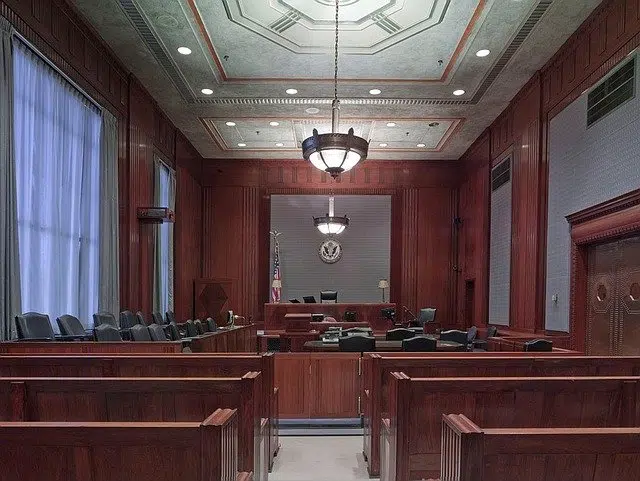
The interdiction prevents the exercise of a right
The Latin word interdictio came into Spanish as interdiction . The term refers to the act and result of interdicting : prohibiting , preventing .
For the right
The concept of interdiction usually refers to the deprivation of a right by court order . Through the interdiction established by a competent authority, the individual is partially or totally denied the exercise of the right.
Sometimes, interdiction is the automatic result of a criminal conviction . In this case we speak of legal interdiction and does not require any procedure other than the application of the penalty established by law .
Judicial interdiction
Judicial interdiction , meanwhile, is decreed by a judge when a person suffers from a serious intellectual deficiency that prevents them from taking care of themselves. This type of interdiction is linked to the protection of the subject.
When someone is declared incapable of certain civil acts through a judicial interdiction, the administration of their property and their own being is taken away from them. The justification is the care of the interests of the individual.
In linguistics
The idea of linguistic prohibition , on the other hand, refers to a psychological brake or obstacle to using certain words that are considered taboo . As these terms are socially incorrect or generate a negative mental association, they are replaced by euphemisms or attenuation is sought.
Linguistic prohibition is related to a stigmatization of constructions or forms of vocabulary . Using the taboo, in this framework, affects prestige , with which the prohibition functions as a defense mechanism to avoid suffering the effects of violating the norm.
This concept is framed in the field of sociolinguistics , the discipline in charge of the social aspects that are related to the use of language, such as the context in which people move, and the norms imposed by the culture to which they live. they belong. Returning to the issue of prestige, the problem is that those individuals who choose to use the taboo will be considered "marginal", less educated or even of lower intelligence than accepted.
The degree to which social norms influence our lives is truly considerable. For example, they lead us to believe that men and women are practically opposites, as if nature had determined it that way, although in reality these differences have arisen after centuries of submission to the rules . In the case of linguistic prohibition, it is believed that the woman is much more careful than the man about using the taboo, and that the man reaffirms his virility by using it.

Air interdiction provides tactical support
Air interdiction
The use of aircraft as launch platforms in the air with the objective of attacking tactically when the enemy is out of the field of vision is known as aerial interdiction . It is important not to confuse it with close air support , since it does not coordinate with ground units nor does it support operations directly.
This type of interdiction is not an independent mission: its main objective is to support one's own ground operations , and not so much to defeat the enemy solely by aerial means. Before continuing, we must point out that in this area the term interdiction is also related to the meaning explained above, since it denotes the ability to ensure that a third party is disqualified.
The first evidence of air interdiction dates back to World War I , and it has been used by the air forces of almost all countries. Back then, the goal was to strafe and bomb opposing supply lines to isolate the battlefield .
